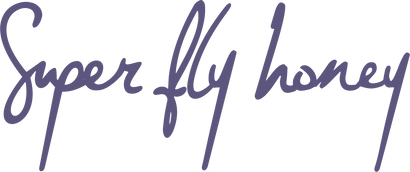FREE WORLDWIDE SHIPPING OVER USD $120 OR $12 FLAT RATE
FREE WORLDWIDE SHIPPING OVER USD $120 OR $12 FLAT RATE


Pole Dancing for Beginners: A Must-Read to Get Started
December 26, 2020 6 min read

Pole dancing is exploding in popularity among women – and even men – of all backgrounds and ages. It’s athletic. It’s sexy. And for total newbies, pole dancing for beginners may look hard as heck to master.
The truth is far simpler than that: pole dancing is just like any other activity, and it takes time and effort to get better at it.
Want to learn how to pole dance? Here’s the 101 on pole dancing for beginners!
What is Pole Dancing?
It’s actually a sport, fitness journey, and performance art in one. Other terms for pole dancing include vertical dance and pole sport.
Pole dancing has its roots in mallakhamb, an Indian gymnastic sport where individuals perform feats of strength and complex poses using a vertical pole. It’s also similar to Chinese pole acrobatics.
Aside from being designed for performance and fitness, modern pole dancing is also a competitive sport.
Individual pole dancers can compete alone or with a team. Countries like the UK, the US, and Australia all host their own “Miss Pole Dance” national level competitions. There are also international competitions such as “World Pole Sport and Fitness” and “Miss Pole Dance World.”
In fact, in 2017, the Global Association of International Sports Federations finally awarded the International Pole Sports Federation an official “observer status.” This opens up the way for pole dancing to be recognized officially as a sport, on the same level with traditional athletics like basketball.
Finally, pole dancing is usually associated with women, but more and more men are also starting to join. Not surprising at all – pole dancing is fun, challenging, and can help you discover skills you never thought you had!
Benefits of Pole Dancing for Beginners
Aside from being fun and exciting, pole dance classes also offer a ton of health benefits such as:
-
Burn Calories Quicker
Pole dancing is an excellent cardiovascular and isometric exercise because it engages all the muscles in your body. The calories you burn in one 30-minute session is comparable to calisthenics and aerobics. Consistent practice paired with a balanced diet can help you achieve significant weight loss.
-
Boosts Self Confidence
Pole moves require a high level of gracefulness, proper posture, and confidence to pull off. It makes you more confident in your body, not just in how it looks, but in what you’re capable of.
-
Reduces Stress and Improves Mood
On top of physical benefits, pole dancing is also good for your emotional and psychological health.
An intense pole dancing session causes your body to produce more endorphins and blow out adrenaline. As a result, you feel happier, calmer, and less stressed out.
-
Enhances Flexibility
Most people don’t think about the importance of flexibility and joint mobility. If you’re more limber, you have a reduced risk of muscle soreness, stiff neck, and back pain. It also lessens your risk of sprains, allowing you to move better and with less pain.
-
It’s Great for Your Joints and Bones
Joint pain is a persistent and serious problem for most people, especially as they grow older. In particular, many women develop osteoporosis later in life.
Joining a pole dance academy can help you develop and maintain strong connective tissue and joints. It also boosts joint mobility without stressing out your joints. In addition, it lowers the risk of carpal tunnel syndrome and other repetitive strain injuries through moves that strengthen the hand muscles such as gripping the pole.
-
Improves Cardiovascular Health
As a moderate-to-intense aerobic activity, pole dancing is amazing for your heart health. It engages all of your muscles, especially when you start practicing more complicated moves. This triggers great blood flow, ensuring that oxygen and nutrients make their way to every part of your body.
-
Boosts Kinesthetic Awareness and Balance
Kinesthetic awareness is how well your brain can place your body in a 3D space relative to other objects around you. People with low kinesthetic awareness tend to bump into object, knock things over, trip, and fall.
Learning how to pole dance sharpens this skill. It forces you to be hyper-aware of what every part of your body is doing when you execute moves up and down the pole. This awareness also gives you better balance as well, because you always know what’s happening in and around your body.
-
Promotes Sleep
Persistent lack of sleep can wreak havoc on your entire body. Without it, it’s hard to be healthy even when you eat a balanced diet.
If you’re having sleeping troubles, regular pole dancing sessions can help. It taxes your body in a good way, releases endorphins that help your brain settle down, and helps ensure that you get high-quality sleep every time you hit the hay.
These are just a few of the physical, mental, and psychological benefits of pole dancing for beginners. It’s a great way to improve your health and quality of life, and you can expect to enjoy more advantages the longer you stay with it.
Types of Pole Dancing
Not sure which type of pole dancing is right for you? Take a look at the three most common:
-
Pole Artistic
This type of pole dancing mainly revolves around music and movement. A pole dancer takes time to develop a character and plan a story instead of just mastering moves. It’s a great choice of you want to try pole dancing as a form of self-expression while also learning acrobatics.
-
Pole Sport / Pole Fitness
If you prefer a more hardcore workout, this one might be perfect for you. Pole sport focuses on intensive drills, mastering technique difficulty, and physical strength. Because of this, the choreography is made mostly of acrobatics with very little dancing move. It’s also a good place to start learning if you’re planning to compete in the future.
-
Pole Exotic
This one is a more sensual approach. If you love wearing sexy clothes and high heels, you’re going to love this type of pole dancing.
There’s less focus on choreography and greater emphasis on flexibility and expression. It’s also a good choice if you also want to pole dance from home.
To help you decide which type best fits your personality and style, consult a pole dancing instructor or join a pole studio for guidance.
Pole Dancing for Beginners: The Basic Moves
As a beginner, it’s important to set the foundation for your pole dancing journey. In fact, one of the most critical advice for newbies is to master the basics first before attempting more complex techniques. Get started with these moves:
-
Walking Around the Pole
It sounds super simple, but there’s an art to walking around the pole. You need to take graceful, precise steps that set the mood for your performance and the rest of your routine.
Physically, learning the correct way to walk around the pole conditions your muscles. It also makes you more aware of your body relative to the pole.
-
Sitting on the Pole
This is another staple beginner move and your path to more advanced movements. As early as now, you should know that this move can be painful! Don’t worry, that’s natural— the stronger your muscles get, the less pain there is.
You have to learn how to grip the pole with your thigh in a highly controlled way, until you can sit on the pole without using your hands. As you get better at it, start climbing up the pole.
-
Fireman Spin
A classic spinning move you’ve probably already seen before! It’s not too tricky, looks elegant, is a terrific way to build your confidence on the pole.
The fireman spin is a classic spin that beginners will likely learn in their first few lessons, it may even be your first ever spin! It’s a spin that looks elegant and is not too tricky to perform for beginners, which will give you confidence.
-
Floor work
As a beginner pole dancer, this is going to be a crucial part of routine preparation and conditioning. If you’re already learning how to spin on a static pole, it’s an excellent opportunity to practice floor work like:
- Slowly lowering yourself into a push up position
- Hair flicks
- Box splits
- Forward splits
- Bicycle legs
- Clockwork legs
These are just some of the beginner pole moves you should expect to learn during your first few sessions. Take your time with perfecting these core moves, so you’re ready for the next level. Your instructor has hundreds more pole tricks, spins, poses, and transitions to teach you!
Is Pole Dancing Right for You?
It’s a wonderful activity for anyone, but the best way to decide if it’s right for you is to actually go and try it out. Start searching for instructors and pole dance lessons in your area. Who knows, you might fall in love with the pole from the very first spin!
And while you are at it, here are some pole fitness exercise tutorials.
Subscribe
Sign up to get the latest on sales, new releases and more …

